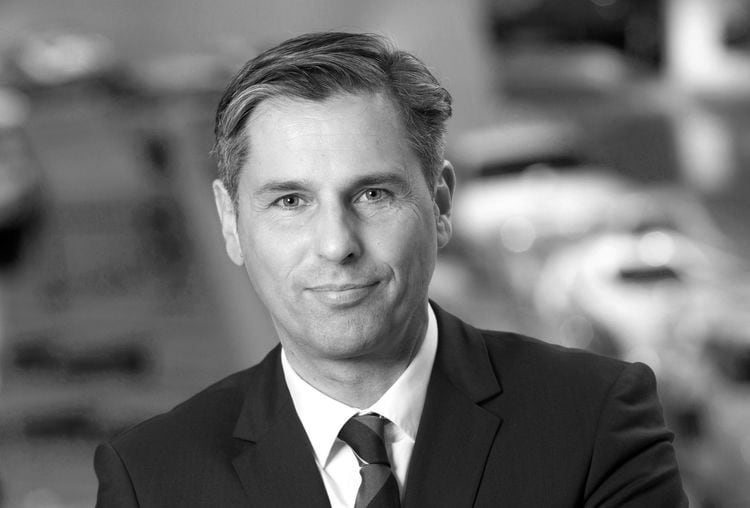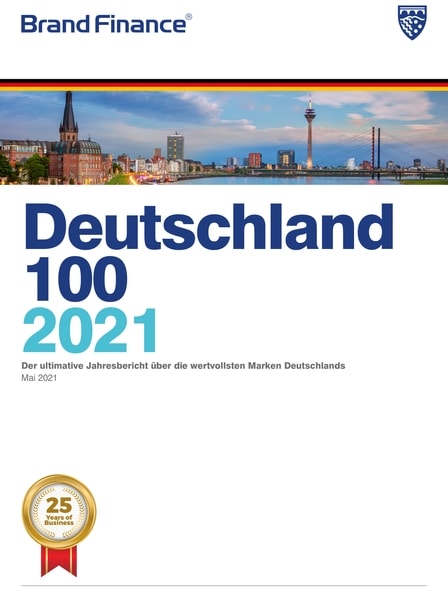Despite the multiple challenges posed by the global pandemic, Volkswagen was named 3rd most valuable auto marque in our latest study, recording 4.7% growth and reaching $47,020m in brand value. We talked to the company's Board Member for Sales, Marketing and After Sales, Klaus Zellmer about Volkswagen's achievements on the journey to becoming the most attractive brand for sustainable mobility, the impact of COVID-19 on their operations, and the digital transformation.
Interview with Klaus Zellmer

What have been the most important effects of COVID-19 on the Volkswagen brand and its business and what actions are you most proud that Volkswagen has made in response?
Protecting our employees has always been our priority, and we succeeded in doing so. During the crisis, we impressively demonstrated what we are capable of and the switch to working from home turned out particularly well. Remote working had been common in other industries for some time but wasn’t very common in ours. The increased flexibility improves employee satisfaction and makes us an even more attractive employer.
The organisation proved to be very flexible and responsive and our set-up also served us well: Purchasing, Logistics, Production and Sales did a great job – and still does. Our solidarity with the dealerships was exemplary. Despite COVID-19, we launched the new electric models ID.3 and ID.4 and trained thousands of dealership staff. The COVID-19 crisis will accelerate the reorganisation of the brand – especially towards digitalisation. Our digital channels have veritably exploded because our customers’ usage pattern has changed dramatically worldwide. This is the reason we intend to invest €16 billion in the future trends of e-mobility and digitalisation over the next five years. E-mobility was just the beginning: the real disruption has yet to come. We are now picking up speed on our path into the digital future.
How important are Volkswagen’s new purpose, investment, and organisational change to help it meet the other important global challenge, climate change?
Our vision of becoming the most desirable brand for sustainable mobility goes hand in hand with our goal of becoming net carbon neutral by 2050. In 2015, we kicked off the largest and most comprehensive electric offensive in the industry and plan to accelerate this further. By significantly exceeding our CO2 targets, we have shown that the brand is on the right track. We delivered more electric vehicles in 2020 than ever before – 212,000 units. At 134,000, the portion of fully electric vehicles tripled when compared to the previous year. In 2021, we will pick up the pace again with further new models and will focus even more on electrifying the brand. We as a brand aim to increase the share of our all-electric deliveries in Europe to over 70% in Europe by 2030. In the USA and China, we intend to exceed 50%. Rather than following the trend, Volkswagen is setting it! We continue to be a driving force in the transformation of our industry. Yet our decarbonisation programme goes far beyond the vehicles. We are examining every single process step, from the supply chain to the manufacturing, delivery, and also operation of the vehicles with green electricity.
How do you see the VW brand’s role changing to fit in within the group’s new strategy?
In developing the Modular Electric Drive Toolkit (MEB), the brand has laid the groundwork for the group. The group’s e-campaign got off to a successful start with the ID.3 and ID.4 – by 2022 the group will have built a total of 27 vehicles based on the MEB. Volkswagen will also take on lead functions for the group in the field of software. For example, the Volkswagen brand is spearheading the development of an efficient and fully networked ecosystem for the group. Going forward, we will regularly update our vehicle fleet throughout its life cycle “over the air”. Customers will be able to add new functions on demand. The brand will also take the lead in the group by establishing a fully networked vehicle fleet with artificial intelligence as a neural network, in which vehicles can communicate with one another. This is the prerequisite for becoming the first manufacturer in the volume segment to make autonomous driving a tangible experience for millions of people before the end of this decade. Autonomous driving must not become the preserve of a select elite. Our brand has always aspired to democratise individual mobility and innovative technology. We aim to become a global market leader in e-mobility and make Volkswagen the most attractive brand for sustainable mobility.
What other trends, challenges or opportunities will the Volkswagen brand have to confront in the next few years?
In the future, Volkswagen will not only manufacture but will also operate its own fleet of carbon-neutral, fully networked vehicles. In implementing “business model 2.0”, we will attract new groups of customers and tap additional sources of income. Before the end of this year, customers who do not wish to purchase or lease their own vehicle will be able to take out a subscription or sign an online contract for vehicles. Starting mid-year, we will offer “over-the-air” updates every 12 weeks. This is something no other volume manufacturer can do. Updates will become the new normal – just like in cell phones and PCs. A big advantage for customers throughout the life cycle. Other approaches already exist, such as our WeShare car-sharing offering in Berlin, where 1,500 electric vehicles circulate, and which has successfully got off the ground in Hamburg, where 800 ID.3s will be on the roads. We plan to expand these offerings further.

